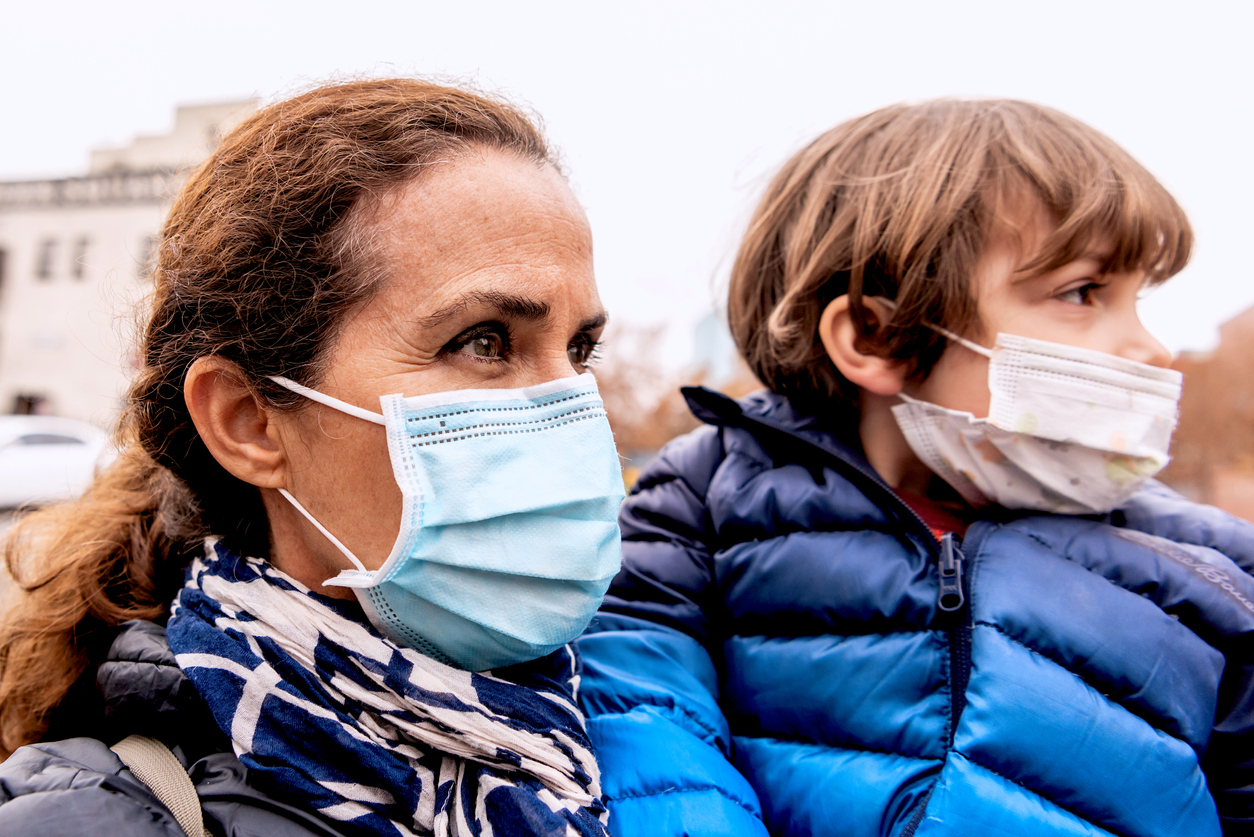Guaranteed Income: Dependence or a Chance to Escape Poverty?

Many national governments have responded to the sharp rise in poverty during the pandemic with new social support programmes, including direct cash payments. During a joint seminar between the HSE Institute for Social Policy and the World Bank held as part of work conducted by the Human Capital Multidisciplinary Research Centre, experts discussed approaches that have been implemented abroad and the prospects of a minimum guaranteed income in Russia.
Tigran Shmis, Human Development Program Leader and Senior Education Specialist of the World Bank (WB), highlighted the fact that, according to optimistic forecasts, the number of people living in poverty in Eastern Europe and Central Asia could grow by 4.5 million people over the course of the pandemic. Pessimistic forecasts say this number could increase by 8 million. He believes that a guaranteed minimum income could become a new word in social policy in Russia.
The moderator of the seminar, Deputy Director of the HSE Institute for Social Policy (ISP) Oksana Sinyavskaya, noted that the Russian government has responded to the sharp increase in poverty and inequality by expanding the old assistance programmes and creating new ones. The need for flexible measures, including a minimum income, had become apparent. She then posed the driving question of the discussion: ‘Can we take advantage of international experience to apply it here?’
Nithin Umapathi, WB Senior Economist and Program Coordinator for Social protection and Jobs in Russia, suggested that a minimum guaranteed income is an effective way to support people living in poverty that prevents the growth of destructive behaviour patterns and loss of work skills that make it difficult to return to the labor market. He noted that the United States recently approved an assistance package of $1.9 trillion, which includes benefit payments to low-income citizens with the aim of accelerating the economic recovery.
In addition to general social support programmes in the world, Mr Umapathi said, there are programmes based on means testing. He belives that a guaranteed minimum income activates the potential of low-income families.
Such assistance programmes mitigate the impact of crises and have a serious multiplier effect, accelerating economic growth
Ludovica Cherchi, Economist of Social Protection and Labor Global Practice of the WB office in Italy, spoke about Italy’s experience with introducing a guaranteed minimum income.
Families with an income of less than 6,000 euros per year per person (less than 40% of the median income in Italy) receive the minimum guaranteed income. Families are eligible for the programme if they do not have non-working members who are of working age. The rest of the recipients sign an employment contract or a social integration contract, which requires compulsory volunteer work at their place of residence. The system is not fully automated. The Ministry of Labour transfers data on non-working people to employment centres, and then social workers study each household and approve the rules for them to participate in the guaranteed minimum income programme. They coordinate these rules with families and, if necessary, involve psychologists and other specialists.
There are also property-owning restrictions. For example, families who own a second property worth more than 30,000 euros cannot receive assistance. Documents for receiving payments are updated every one and a half years. The programme was approved in 2017, launched in pilot regions, and since 2019 has been extended to the whole of Italy. Today, it is an 8-billion-euro programme. 1.3 million families with a total number of 3 million people have received guaranteed income payments.
The distribution of income payments varies significantly among regions in the country. A third of Italy’s minimum income recipients reside in the south, in Campania and Sicily. This benefit is the only source of income for 45% of programme participants. The poverty rate among beneficiaries, noted Ludovica Cherchi, is 26%, which is 3.5 times more than the average in Italy.
The guaranteed minimum income enabled a quarter of its recipients lift themselves out of absolute poverty. The income deficit decreased from 67% to 12%.
The advantage of this approach in the fight against poverty, Ms Cherchi explained, is that it provides a more accurate assessment of the number of beneficiaries, allows individuals to receive assistance in returning to the labour market, and allows policymakers to evaluate the implementation of the programme at the municipal and regional levels.
Oksana Sinyavskaya believes that a key issue of introducing of a guaranteed minimum income is the difficulty of replacing a complex system of social assistance that has different entry conditions with a single programme to support those in need.
In Russia, Nithin Umapathi said, the possibility of a guaranteed income programme lacks support for several reasons. Namely, these are fears that such a programme will cause dependence and that social workers will be punished for approving benefits for individuals who do not need them.
Olesya Feoktistova, Head of the Social Finance Center of the NIFI of the Russian Ministry of Finance, noted that attempts have been made before to introduce broader and more easily administered poverty benefits. For example, in 1997 an experiment was carried out in the Voronezh and Volgograd regions and the Komi Republic. In 2015, the development of the concept of a universal poverty benefits programme began. The center has made an inventory of social support measures and developed a methodology for determining the need.
There are two scenarios for introducing a minimum guaranteed income in Russia. The first involves expanding existing benefits by introducing new ones. The second, more complicated scenario involves abolishing of part of the benefits and combining them into one programme.
Introducing the concept of social treasury and digitalizing social assistance will allow the government to adequately assess whether a family needs assistance and how much
This, says Olesya Feoktistova, will make it possible to determine the amount of the allowance. Additionally, property criteria will be considered when allocating assistance.
Yuri Voronin, Director of the Center for Legal Support of Social and Economic Reforms at the Institute of Legislation and Comparative Law under the Government of Russia, noted that in Russia the concept of a guaranteed minimum income is implemented through regional need-based benefits, which do not correspond with the financial capabilities of the territories. However, if benefits were to be increased and federalized, it would increase costs.
The key problem in granting assistance, Yuri Voronin said, is the way in which poverty is measured — the subsistence minimum, which reflects the minimum requirements for physical survival. If we continue to use this measurement, we will not be able to overcome poverty, he said.

‘I am convinced that we do not need to apply a cut-off mechanism,’ said Mr Voronin. ‘Rather, we can use a basic unconditional income. It should be paid to those who are unable to work, and those who are able to work should be provided with work and protection from unemployment.’
Sergey Smirnov, Director of the HSE Centre for Social Programme and Risk Analysis, highlighted the problems of determining income from informal employment and property for families and households. He also proposed studying the influence of rental housing and mortgages on need.
Nithin Umapathi noted that the problem of poverty in Russia persists: the share of the population living in poverty fluctuates between 12-13%. In the absence of a federal programme, the regions cannot achieve significant success. To reduce the poverty rate from 13% to 7%, the social system must be revised.
‘Some money can also go to families who are not in need. Though this presents a minor loss to the budget, we believe that the losses the country incurs by having a significant portion of families living in severe poverty are more significant. The minimum guaranteed income approach will help solve the problem of targeted assistance,’ he said.
According to Ludovica Cherchi, income from shadow employment is an urgent problem, but it can be calculated by studying the total income and expenses of households, their involvement in labour, and data from the tax authorities. Summing up the discussion, Lilia Ovcharova, Vice Rector of HSE University and Director of the HSE Institute for Social Policy, noted that Russia is getting closer to introducing a guaranteed minimum income. The universality of such a benefit lies in the possibility of receiving it by everyone whose income is below a certain level. She stressed that the transition to the new social support system should be gradual, so as to avoid causing detriment to current assistance recipients or disrupting the current order of social support.

